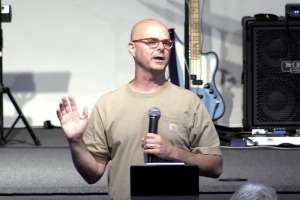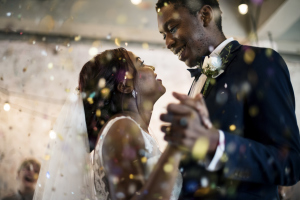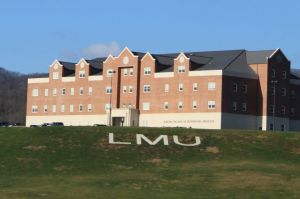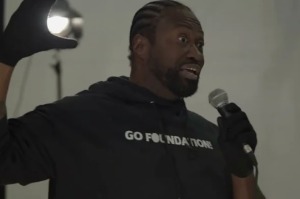Fuller President Clarifies Controversial Statements on Mormonism
Richard Mouw, president of Fuller Theological Seminary, defended the controversial comments he made during an evangelical event held at the signature Mormon temple in Salt Lake City
Richard Mouw, president of Fuller Theological Seminary, has been caught in a trench for the apologetic comments he made to the Mormon community during an evangelical "Evening of Friendship" event, Sunday, Nov. 14.
Mouw, renowned seminarian and president of Fuller, spoke briefly at the Church of Jesus Christ of Latter-day Saints' (LDS) "signature pulpit" in Salt Lake City as part of a two-night event, sponsored by Standing Together Ministries -- an evangelical Christian group headquartered in Lehi, Utah.
His comments, which included statements such as "Let me state it clearly, We evangelicals have sinned against you," stirred consternation among top "evangelical Christian leaders and experts on Mormonism," according to the Southern Baptist Convention's Baptist Press (BP).
"We've often seriously misrepresented the beliefs and practices of members of the LDS faith," Mouw was quoted as saying. "It's a terrible thing to bear false witness ... We've told you what you believe without first asking you."
"I remain convinced there are serious issues of difference that are of eternal consequence, but now we can discuss them as friends," Mouw said, according to the Salt Lake City Tribune.
While the sponsors and attendees to the event called it a success - it was the first time in 105 years that a preacher of another faith spoke at the pulpit of the Tabernacle on Temple Square, some evangelicals were taken aback by Mouw's comments.
Mike Gray, pastor of Southeast [Southern] Baptist Church in Salt Lake City, said to BP that "Mouw was wrong" in his assessment of the evangelical voice.
"[Mouw] was wrong. He had no business. And it will hurt," said Gray, who added other terms such as "insensitive," "inaccurate," and "ignorant" about Mouw's comments.
"Some of my people were there and they were turned off by the whole event because of him," Gray continued.
Gray, whose church was one of the sponsoring evangelical churches for the event, said the most disrespectful part of Mouw's comments was his "ignorance" of what the evangelical community is doing in the Salt Lake City area.
"He doesn't live here and he doesn't know what we do," Gray said to BP. "We haven't been ugly to our Mormon neighbors. We love them and care about them."
He also said the comments were controversial because it blurred the lines between Mormons and Evangelical Christians.
"We want to become all things to all men to reach them to share the Gospel," Gray said. "And the tension and balance is how do you share the Gospel but not become part of standing with the Mormons.
"That's always the balance that we try to find here," he added in his comments.
Time Clark, executive director of the Utah-Idaho Baptist Convention agreed, saying that Mouw's comment can send a confused message to both Christians and Mormons.
"[Mouw is] sending a message to Mormons that they are a part of mainstream Christianity," Clark said to the BP.
"The Mormons will take that and use that kind of language. It's a half truth, but that's how they report it," he added.
"It sets back our work as Christian witnesses in Utah and Idaho," Clark said. "I can't speak to what it does outside of Utah and Idaho, but I can tell you it does not communicate a clear Gospel presentation."
According to Clark, Mormons have been trying to target Baptists and Methodists who "don't know what they believe" in evangelizing them.
"The evidence is tangible. Why are the Mormons building temples in New York City, Dallas and Atlanta? It's because they're targeting Baptists who don't know what they believe," Clark said.
Clark added that Mouw's approach was not the best at such a historic occasion.
"If I had been Dr. Mouw, I would have talked about the life, burial and resurrection of Jesus Christ," Clark said.
Meanwhile, the BP said Mouw "acknowledged not all evangelical Christians have sinned against Mormons by 'bearing false witness.'"
"I certainly did not mean to imply that every evangelical has sinned in this regard," Mouw wrote in defense to questions asked by BP. "Suppose I were to address an African-American gathering and say that we whites have sinned against you blacks. Who would deny that this is a correct assessment? But who would think that I was speaking about and on behalf of all white people?"
"In none of this am I saying that Mormons are 'orthodox Christians.' But I do believe that there are elements in Mormon thought that if emphasized, while de-emphasizing other element[s], could constitute a message within Mormonism of salvation by grace alone through the blood of Jesus Christ," Mouw wrote. "I will work to promote that cause."
Nonetheless, Mouw said he still stands by the validity of his comments.
"I am deeply sorry for causing distress in the evangelical community," Mouw wrote. "[But] I make no apology for wanting to foster gentle and reverent dialogue with Mormon friends."
"At the very least admit that we have not always been fair in our wholesale condemnation of Mormonism as simply a false religion," said Mouw.
There is a "discernible pattern of sinning against LDS" members by evangelicals, Mouw said in his response. Authors such as Walter Martin, who "oversimplified Mormon teaching," and Dave Hunt, who represented Mormonism as "Satanic in its inspiration and practice," are "bearing false witness," said Mouw.
Mouw also clarified the comments he met about celebrating the 200th anniversary birthday of Joseph Smith, the founder of the LDS.
"I can see how people heard me say that we evangelicals should join in 'celebrating' Joseph Smith's birthday, but that is not what I intended to say," Mouw wrote. "Instead I said that I hoped many evangelicals would participate in those events that would allow us all to 'pay special attention to Joseph's life and teachings' during this year."
Mouw said that his statement caused "unnecessary confusion," but that events like Smith's birthday allow "critical give and take" when "we evangelicals can try to sort out the good from the bad in Joseph's thought."
"For the record: I do not believe Joseph Smith was a true prophet of God; I do not accept the Book of Mormon as a legitimate revelation; I do not believe that temple baptism saves; I do not believe that all people will be saved.
"And it [is] precisely because of this that when my good friend [and Brigham Young University professor] Bob Millet says that his only plea when he gets to heaven is 'the mercy and merit of Jesus Christ,' I want to respond by saying with enthusiasm, 'Let's keep talking!"
The main preacher during the two-night event was Zacharias, a philosopher, author, and well-known apologist among the evangelical community. The last time a non-Mormon was invited to speak at the Tabernacle on Temple Square was in 1899, when Dwight Moody, founder of the Moody Bible Institute, address the crowd.



























